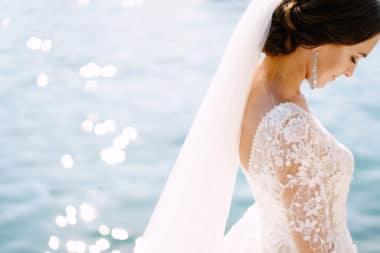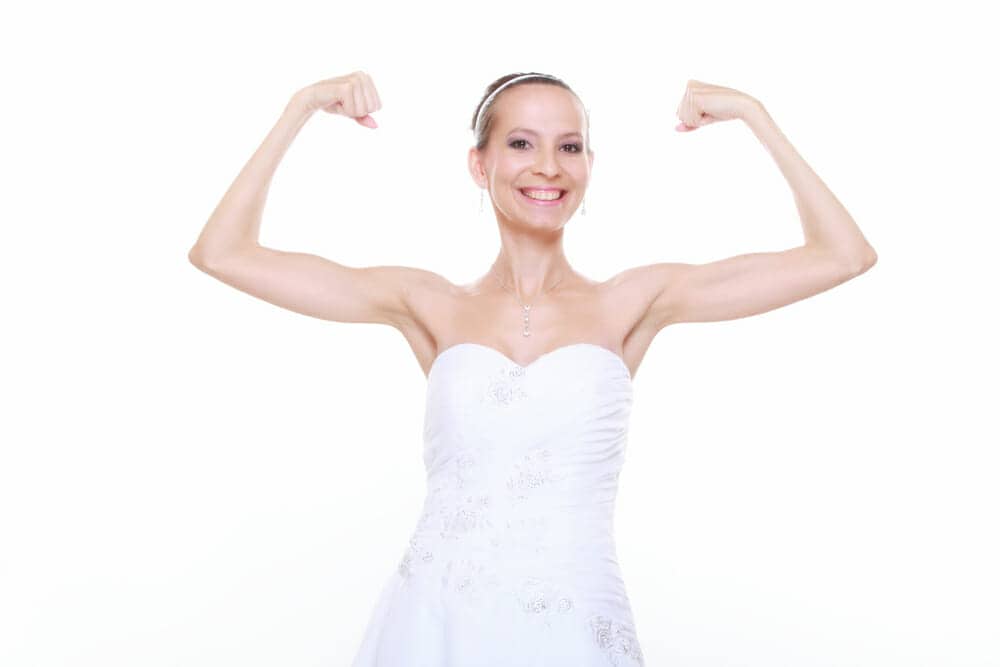There are many factors that affect a brides ability or inability to release fat such as sleep, stress, chemicals in your beauty products, quality of food, toxins in your home and hydration. I’m sure you’ve heard the “eat less and exercise more” advice for losing weight before wedding. The truth is “eating less and exercising more” doesn’t paint the whole picture. Getting the correct levels of nutrients is crucial for your body to function optimally in the weight loss department.
There are other minerals and vitamins that play big roles in your “lose weight before the wedding plan” but today I’m going to talk about iron.
I have personally been dealing with iron deficiency and I wanted to share information that may be the key to unlock your difficulty with releasing fat and provide a reason why you may be feeling a lack of motivation or energy.
Iron is a mineral responsible for carrying oxygen in your red blood cells. Women who are premenopausal (still get your monthly period) are at highest risk for low iron and can be determined with a blood test. I’m a big supporter of getting blood work done because you “don’t know what you don’t know.” An integrative or functional medicine practitioner generally tests for much more than a conventional practitioner but you can request additional tests like serum ferritin that measures how much iron you have stored in your body. If your ferritin levels are low, it means your iron levels are also low and vice versa. According to Dr. Mercola, a leading authority in the alternative medicine world, a healthy range of serum ferritin is between 20 and 80 ng/ml, ideally between 40 and 80, below 20 you are iron deficient and above 80 is an iron surplus. High iron levels can be a big problem but generally the issue with Brides is low iron. Below are symptoms of low iron:
- Exhaustion. This is the most common symptom of iron deficiency but sometimes difficult to identify. “Women are so used to having frenetic lives and feeling tired,” says Nancy Berliner, MD, deputy editor of Blood, the journal of the American Society of Hematology. “They often just dismiss being tired as part of life.” However, iron deficiency causes less oxygen to reach your tissues, so your body is deprived of the energy it needs. If you’re feeling weak, irritable or unable to focus is combined with your “normal” tired, iron deficiency might have something to do with it.
- Heavy periods. The number one cause of iron deficiency is too-heavy periods, says Jacques Moritz, MD, director of gynecology at Mount Sinai St. Luke’s Roosevelt in NYC.
- Pale complexion. Hemoglobin gives your blood its red color so when levels of the protein are low it can suck the color straight from your skin. If the inside of your lips, your gums and the inside of your bottom eyelids are less red than usual, low iron may be to blame.
- Shortness of breath. If your oxygen levels are low, you’ll feel out of air. If you notice you are getting out of breath doing things that you’d normally handle with ease such as climbing a flight of stairs, iron deficiency could be the reason.
- Headaches. An iron deficient body is limited in oxygen and with getting less than ideal amounts getting to your head, the brain’s arteries can swell, causing headaches, according to the National Headache Foundation.
- Feeling anxious. Iron deficiency can trick you into feeling more anxious for no reason. A lack of oxygen revs up your body’s sympathetic nervous system, which is kind of like your body’s gas pedal, Dr. Berliner says.
- Underactive thyroid. Iron deficiency slows your body’s thyroid function and blocks its metabolism-boosting effects, according to the National Academy of Hypothyroidism.
Deficiency in one mineral or vitamin such as iron and vitamin D can have multiple symptoms and side effects. By fixing the deficiency you can dramatically affect your quality of life in a positive way!
What should you do if you have some or all of the symptoms above?
- Make an appointment with a medical doctor for a physical and blood work.
- Increase the amount of red meat in your diet. Grass-fed is best because it’s has higher nutritional values and the cows are not injected with hormones, which is not the case when you buy conventional meat.
- Supplement with iron from a high quality source. Iron requirements aren’t one-size-fits all but typically women between the ages of 19 and 50 need 18 mg per day. Depending on how heavy your periods are could also alter your needs. If you’re pregnant you need 27 mg. If you are taking a multivitamin it more than likely does not contain iron. You could consider taking a prenatal that includes iron.
If you are a vegetarian or vegan it’s important to know that all iron isn’t created equal. Your body absorbs heme iron, which comes from meat, poultry and fish, two to three times more efficiently than non-heme iron from plants, says nutritionist Rania Batayneh, author of The One One One Diet. By pairing iron rich vegetarian sources of iron, like legumes, with vitamin C rich foods like peppers, berries and broccoli will boost your absorption. Do you have low iron or symptoms of it? Leave your comments below.
I want to support you in reaching your goals to get wedding dress ready and feel fit & fabulous on your big day! Find out how to become an Exceptional Bride- join today! Contact me directly for more information, [email protected]!








Reply